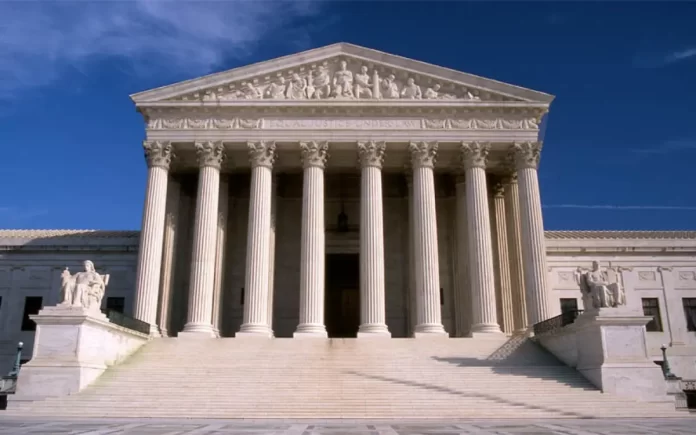Washington: On Monday, U.S. Supreme Court justices displayed skepticism towards a challenge, grounded in free speech concerns, regarding the Biden administration’s encouragement for social media platforms to remove posts identified as misinformation by federal officials, including content related to elections and COVID-19.
The justices engaged in oral arguments concerning the administration’s appeal against a lower court’s preliminary injunction, which limited how White House and select federal officials engage with social media platforms.
Missouri and Louisiana, led by Republican administrations, along with five individual social media users, initiated the lawsuit against the administration. They contended that the government’s actions infringed upon the free speech rights outlined in the U.S. Constitution’s First Amendment, particularly for users whose posts were taken down from platforms like Facebook, YouTube, and Twitter (rebranded as X).
The crux of the case revolves around determining whether the administration’s actions constituted coercion, veering beyond mere communication and persuasion and into the realm of unlawfully censoring disfavored speech, as determined by lower courts.
Read More: Meta, Boeing, GE Vernova Spearhead US Delegation for High-Stakes Talks in Vietnam
The Biden administration has defended its actions by highlighting the necessity of addressing online misinformation, particularly false information regarding vaccines during the pandemic, which officials argued led to preventable deaths. They claimed that their engagement with social media companies aimed to alert them to content violating their own policies.
During the hearing, Justice Department lawyer Brian Fletcher emphasized the government’s entitlement to express its views while asserting that coercive threats to suppress speech are impermissible.
The plaintiffs argued that platforms disproportionately suppressed conservative-leaning speech due to government coercion, constituting a form of state action prohibited by the First Amendment.
Read More: Antony Blinken Warns of Authoritarian Tech Threat to Democracy
Several justices probed the issue of legal standing for the plaintiffs and the extent of harm caused by the government’s actions.
Justice John Roberts noted the decentralized nature of the government, suggesting that internal disagreements could dilute the notion of coercion.
Justice Samuel Alito expressed concern over the pressure exerted by administration officials on social media platforms, likening their treatment to that of “subordinates”.
Read More: UK Affirms Plan to Commence Migrant Deportations to Rwanda in Spring, Reiterates Sunak
Justice Brett Kavanaugh suggested that such interactions might not be uncommon, drawing parallels with how federal officials engage with the media.
The case also sparked discussions on hypothetical scenarios, with Justice Ketanji Brown Jackson presenting a situation involving harmful content on social media platforms.
The lawsuit named several federal agencies and officials, with Louisiana-based U.S. District Judge Terry Doughty issuing a preliminary injunction in July 2023. The 5th U.S. Circuit Court of Appeals subsequently narrowed the injunction, leading to Supreme Court review.
A ruling from the Supreme Court is anticipated by the end of June.



